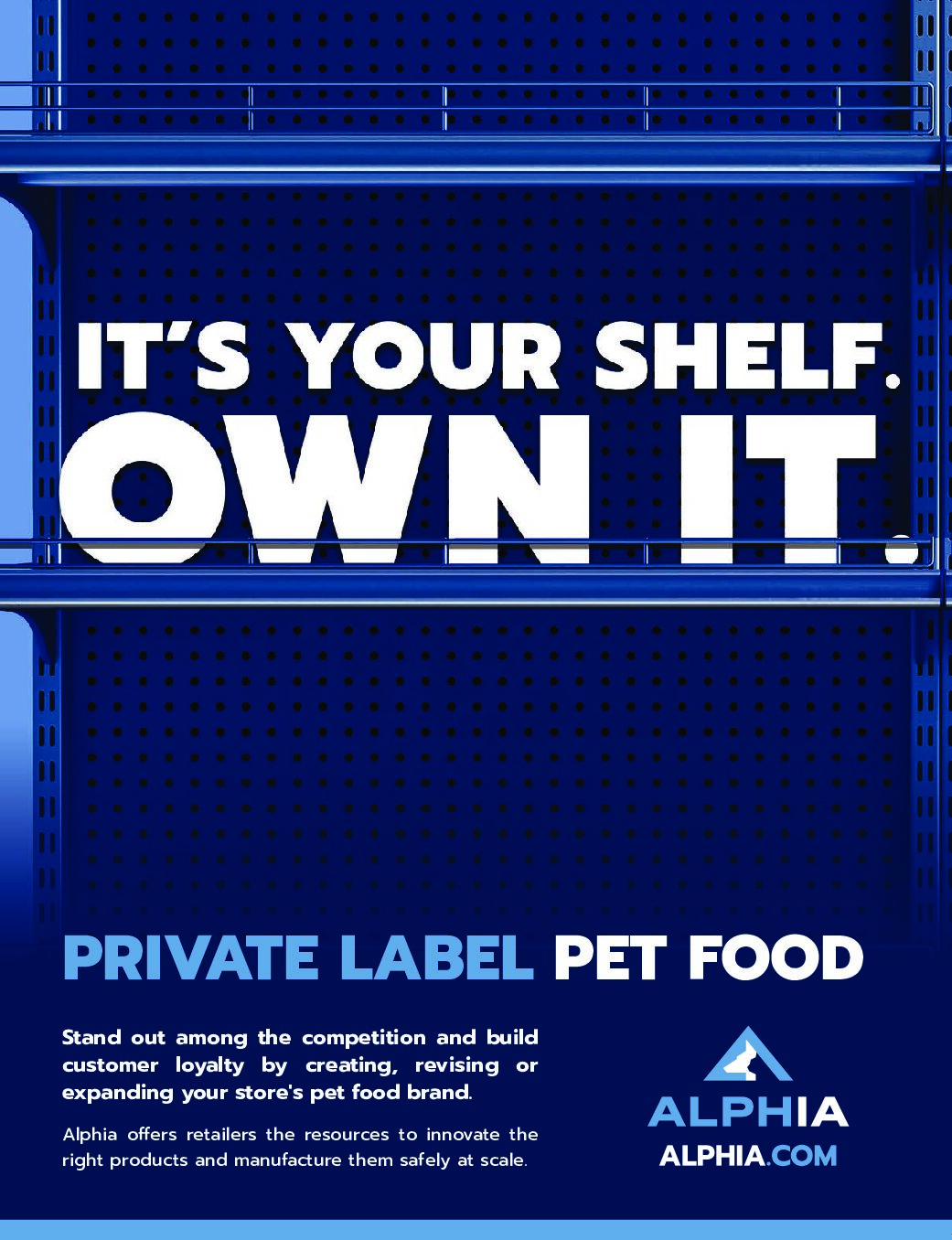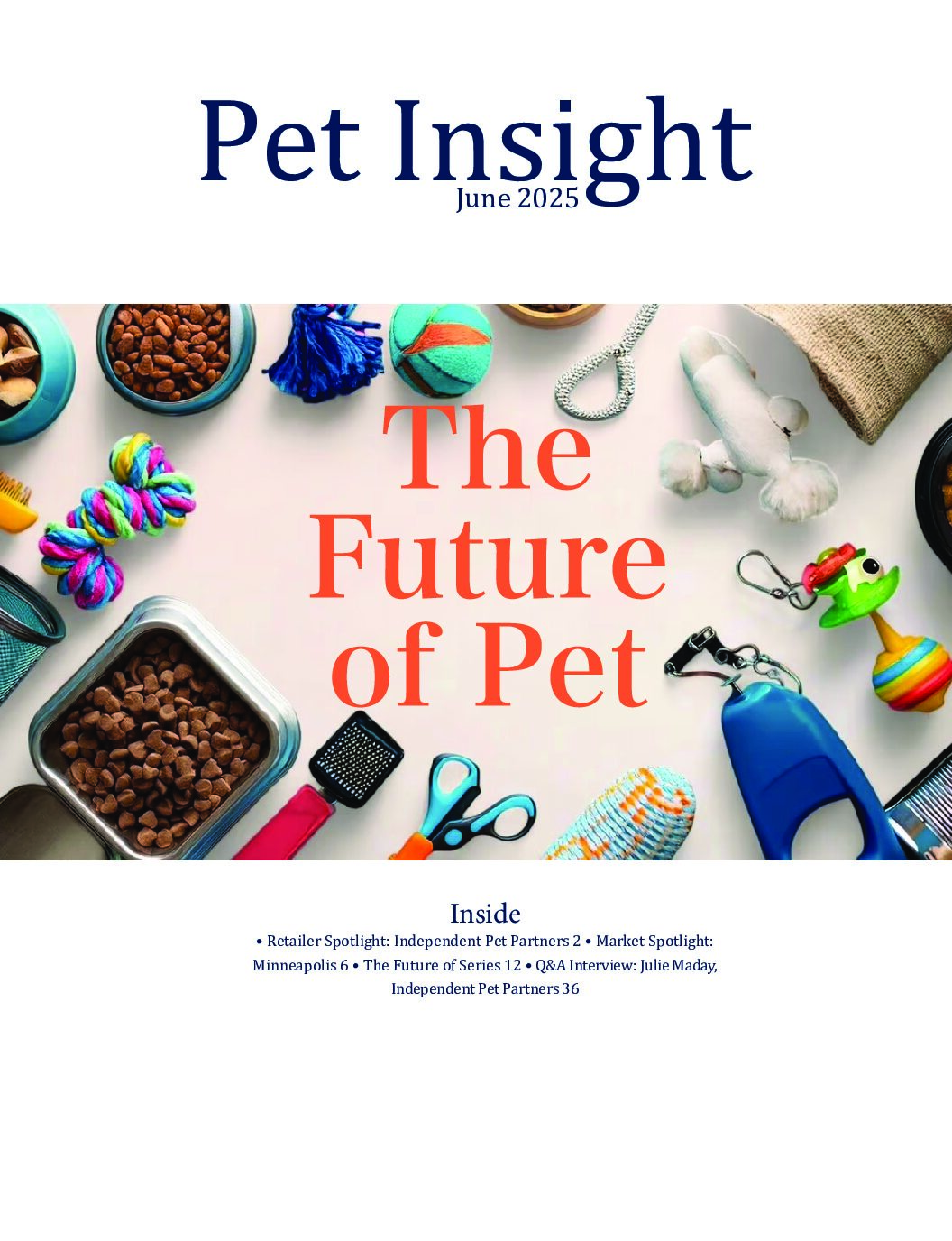The Future of Private Label
The instability of the current economy has given many consumers pause, and as is expected in these kinds of climates, many are looking for ways to save. Private label brands have historically represented a means to do so; however, they’ve also been viewed as a ‘trading down’— a copycat of a national brand offering that first came to market. Manufacturers that operate in the pet private label space these days are demonstrating that owned brands can rival name brands in both quality and innovation while also delivering on savings.
Customers are searching for quality alternatives at a lower price point, according to a Tuffy’s Pet Foods spokesperson. “We are currently onboarding new customers monthly and have many new projects in the pipeline for the back half of the year,” he said. “We have a talented research and development team that continually works on innovation. We collaborate with our key suppliers developing unique products to be offered to a private label customer enhancing their brands current claims or line extensions.”
At the same time, some retailers may turn to manufacturers for a more traditional private label solution. FoodScience, LLC operates its contract manufacturing business under the service brand Pet Tech Labs. “Across much of the CPG landscape, retailers are turning to private brand as a strategy to secure their customer base while also winning share from national brands,” said Sara J. Phillips, VP of Global Business. “We see two approaches: same for less—the classic CPG ‘same as X brand, but at a lower price’; or a highly unique product concept, bringing premiumization to the retailer’s private brand offering. We work with retailers leveraging each of these strategies.”
This year has been shaping up to be a strong year for pet supplement contract manufacturers, thanks to new entrants into the category, said Phillips. “Our sales strategy features a mix of growth from both current and new business opportunities,” she said. “Clearly articulating the unique selling proposition of the Pet Tech Labs service brand is helping us to win new customers and drive growth. As the pet supplement contract manufacturing category matures, we are seeing differentiation among the providers with different companies offering different strengths. Understanding our unique strengths helps us to target and win in this space.”
Private label as a segment has taken a noteworthy portion of overall sales in the last year, according to the Private Label Manufacturers Association (PLMA). In January, the PLMA reported sales of store brands increased $9 billion to a record $271 billion in 2024 over 2023. Breaking it down further, the pet care category also saw a 3.5 percent increase in store brand dollar growth over 2023.
“We’ve had 29 months, almost two and a half years, where store brands finished ahead of the national brands in dollar and unit share compared to prior years,” PLMA President Peggy Davies said in March. Of the first two months of the year, she added, “Store brands’ market share per unit is up to 23.9 percent and dollars at 21.7, which are both at an all-time high. We think this reflects private label’s superior multi-year performance versus the brands both brick-and-mortar and e-commerce. We seem to have delivered on the sustainability that people are looking for, we’re dependable, reliable and it becomes a bit of a rote situation where this is now what I buy every time. In particular, if you go and shop online, what did I purchase last and you just click and put this back in my cart. It becomes a bit of a great position to be in.”
Phelps Pet Products’ new 178,000-square-foot facility in Janesville, WI has enabled the company to better meet the increased demand for its retail private label manufacturing services, which saw record growth in 2024, according to Rick Ruffolo, President and CEO of Phelps Pet Products. “The new facility enables Phelps to provide our customers with unsurpassed variety in treat shapes, sizes and recipes,” he said. “Additionally, we are seeing market share gains for retailers as they expand and bring innovation to their private label offerings. This trend seems to have had the most impact on some of the larger national brands as they struggle to find meaningful innovation to justify their price premium relative to the retailer’s ‘own brand’ assortment. We also have seen growth with brands we partner with who have a clear differentiated positioning such as USDA Organic, 100 percent plant-based, made with certified upcycled Ingredients, or other clean-label, nutrition-conscious recipes.”
Alphia’s value propositions for the retail private label segment include quality and safety.
“At Alphia, we are committed to nourishing and protecting pets by manufacturing the highest quality pet food,” said Dave McLain, CEO and President of Alphia. “We aim to revolutionize the pet industry with exceptional quality and innovation with our priority set on food safety. We saw an opportunity to set new standards, differentiate ourselves from our competitors and cater to the increasing demand for pet food offerings. We’ve earned the trust of our customers, built strong relationships and maintained a competitive edge in the market.”
Meanwhile, “food safety and quality permeate every aspect of our operations,” McLain said. “Alphia aims to educate the industry about the exceptional quality and safety of the products we manufacture. We offer an extensive range of products across various pet food segments, showing our customers, that pets can enjoy high-quality pet food at more affordable price points all while ensuring food safety and quality. At Alphia, we value the importance of food safety and providing safe products so that families don’t have to sacrifice high-quality and safe pet food options because of what they can afford.”
Rather than continue to play second fiddle to national brands, pet private label manufacturers are in the driver’s seat for innovation, quality and safety. Presently, they provide a unique choice for retailers and end consumers alike who are looking for cost-saving solutions while not negotiating on the best quality products they can afford for their pets.


